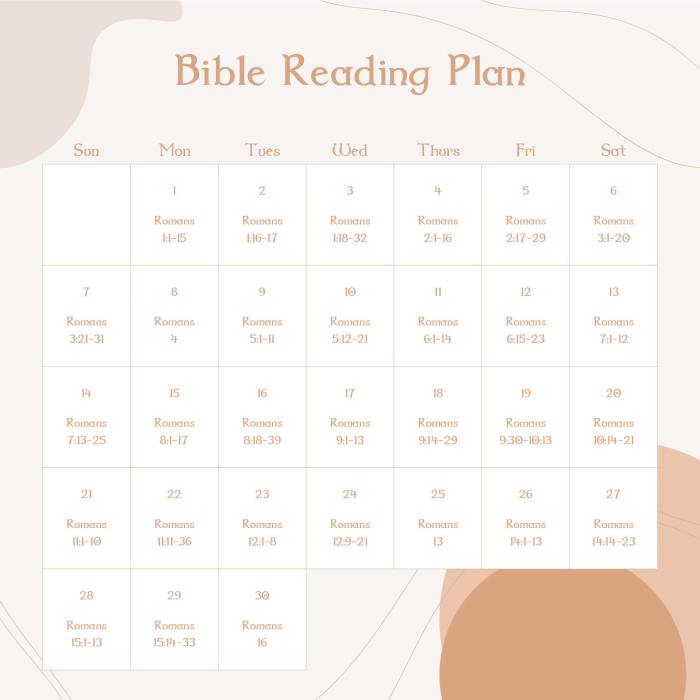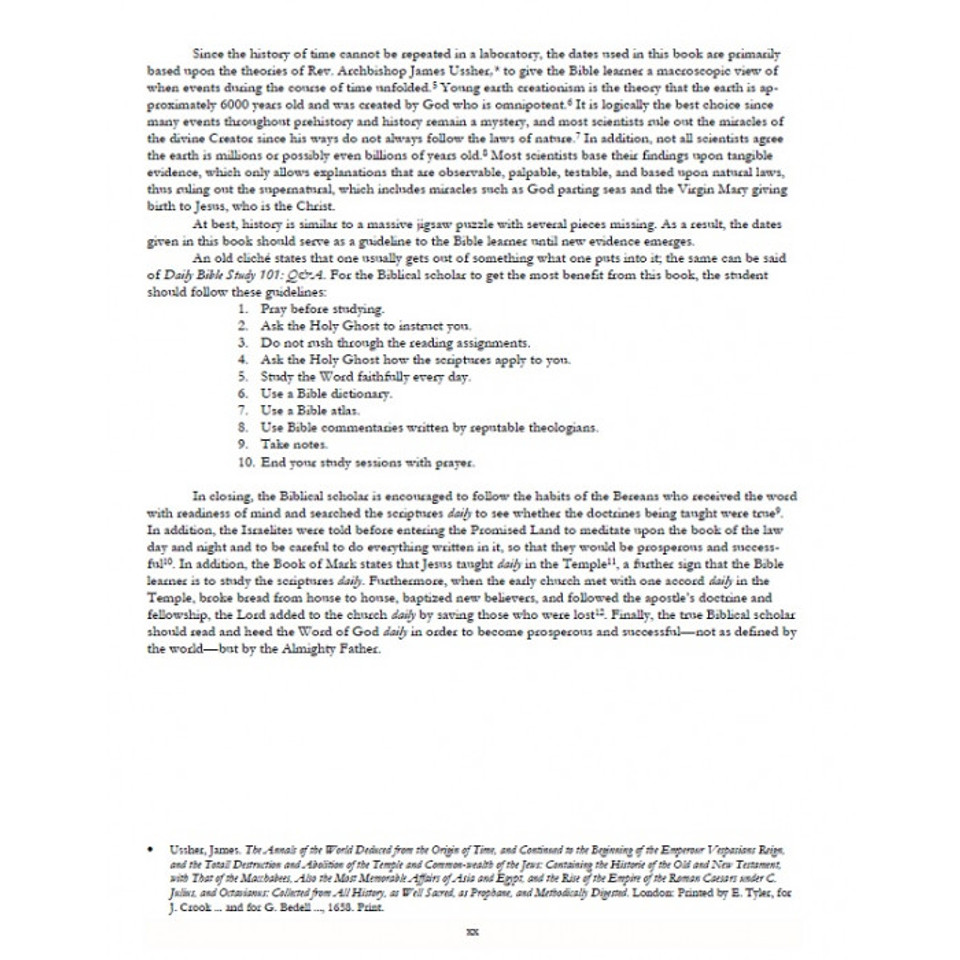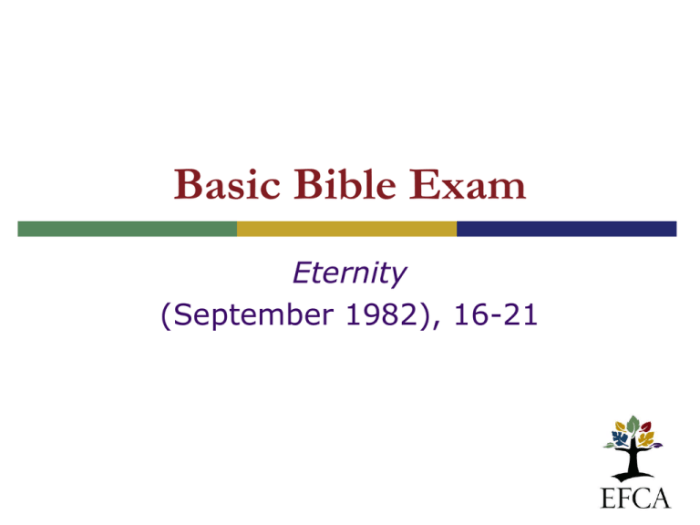Embark on a journey of biblical discovery with our bible recap study guide answers. This comprehensive guide unravels the tapestry of the Bible, providing a clear and concise understanding of its teachings, characters, and significance.
From the sweeping narratives of the Old Testament to the transformative teachings of the New Testament, this study guide offers a panoramic view of the Bible’s timeless truths, empowering you to apply its wisdom to your daily life.
Bible Overview
The Bible is a collection of sacred texts or scriptures that are central to the beliefs and practices of Judaism and Christianity. It is believed to have been written by various authors over a period of centuries, and it is considered to be the inspired word of God.
The Bible is divided into two main sections: the Old Testament and the New Testament. The Old Testament contains the history, laws, and prophecies of the Israelites, while the New Testament contains the teachings of Jesus Christ and the early Christian church.
Major Themes
There are several major themes that run throughout the Bible. These include:
- The creation of the world and the fall of humanity
- The covenant between God and his people
- The life and teachings of Jesus Christ
- The redemption of humanity through Jesus’ death and resurrection
Major Characters
There are many important characters in the Bible, including:
- Adam and Eve
- Abraham
- Moses
- David
- Jesus Christ
- The Apostles
Old Testament Summary

The Old Testament, encompassing 39 books, chronicles the history of God’s relationship with humanity from creation to the era of the prophets. It provides the foundation for understanding the New Testament and Christian faith.
Creation and the Patriarchs
Genesis narrates the creation of the world and humanity, the fall into sin, and God’s promise of redemption through the descendants of Abraham. Key figures include Adam, Eve, Noah, and the patriarchs Abraham, Isaac, and Jacob.
Exodus and the Law
Exodus recounts the Israelites’ liberation from slavery in Egypt through Moses. God establishes a covenant with them, giving them the Ten Commandments and the law.
Conquest and Kingdom, Bible recap study guide answers
The books of Joshua, Judges, Samuel, and Kings describe the Israelites’ conquest of Canaan, their establishment of a monarchy, and the reigns of notable kings like David and Solomon.
Prophets and Exile
The prophetic books of Isaiah, Jeremiah, Ezekiel, and others address social injustice, call for repentance, and foretell the coming of a Messiah. The Israelites’ disobedience leads to exile in Babylon.
Restoration and Return
Ezra, Nehemiah, and Esther depict the Israelites’ return from exile and the rebuilding of Jerusalem and the temple. They face challenges but ultimately establish a renewed covenant with God.
Wisdom Literature
The books of Job, Psalms, Proverbs, and Ecclesiastes offer wisdom, guidance, and insights into human nature and God’s ways.
Prophecies of the Messiah
Throughout the Old Testament, numerous prophecies point to the coming of a Messiah who would bring salvation and redemption.
New Testament Summary
The New Testament narrates the life, teachings, death, and resurrection of Jesus Christ, the central figure of Christianity. It also documents the establishment of the early Christian church.
The Gospels
The Gospels (Matthew, Mark, Luke, and John) provide eyewitness accounts of Jesus’ life and teachings. They depict His miracles, parables, and interactions with His disciples. The Gospels emphasize His role as the Messiah and Savior.
Acts of the Apostles
The book of Acts chronicles the growth and expansion of the early Christian church. It describes the work of the apostles, particularly Peter and Paul, in spreading the gospel and establishing churches throughout the Roman Empire.
Epistles
The Epistles are letters written by apostles and other early Christian leaders. They address various theological and practical issues facing the early church, providing guidance on matters of faith, conduct, and church governance.
If you’re looking for a comprehensive guide to understanding the Bible’s complex narratives, the Bible Recap Study Guide Answers provide invaluable insights. Similarly, if you’re crafting an academic paper on Suzanne Collins’ dystopian masterpiece, check out the Hunger Games MLA citation for proper referencing.
Returning to our study of the Bible, the Recap Guide Answers offer a structured approach to unraveling the Word’s profound teachings.
Topical Study Guide: Bible Recap Study Guide Answers

A topical study guide organizes Bible verses according to specific topics, providing a comprehensive overview of various themes and concepts.
The following table presents some common topics along with relevant Bible verses and brief explanations:
| Topic | Bible Verses | Explanation |
|---|---|---|
| Salvation | John 3:16, Romans 10:9-10, Ephesians 2:8-9 | The free gift of God’s grace that redeems sinners from sin and its consequences. |
| Prayer | Matthew 6:9-13, James 5:16, 1 Thessalonians 5:17 | Communication with God, expressing gratitude, seeking guidance, and making requests. |
| Holy Spirit | John 14:16-17, Acts 1:8, 1 Corinthians 12:1-11 | The third person of the Trinity, who indwells believers, empowering them with spiritual gifts and guidance. |
Character Profiles

The Bible is filled with an array of captivating characters who play pivotal roles in shaping the narrative. Their actions, beliefs, and personalities profoundly impact the story, offering valuable insights into human nature and the nature of God.
Understanding the key characteristics and motivations of these biblical figures is essential for grasping the depth and complexity of the biblical text.
Adam and Eve
- Key Characteristics:The first man and woman, created in the image of God.
- Role:Representatives of humanity, tested with obedience to God’s command.
- Impact:Their disobedience led to the fall of humanity, introducing sin and suffering into the world.
Abraham
- Key Characteristics:A patriarch of faith, known for his obedience and trust in God.
- Role:The father of the Jewish nation, through whom God established a covenant with his people.
- Impact:His unwavering faith became a model for future generations and laid the foundation for the development of monotheism.
Moses
- Key Characteristics:A prophet and leader who delivered the Israelites from slavery in Egypt.
- Role:Received the Ten Commandments from God and mediated between God and the people.
- Impact:His leadership shaped the identity of the Israelites and established the basis for their religious and legal system.
David
- Key Characteristics:A shepherd boy who became a great king, known for his courage, passion, and love for God.
- Role:United the kingdom of Israel, established Jerusalem as its capital, and composed many of the Psalms.
- Impact:His reign is considered a golden age in Israel’s history and is seen as a foreshadowing of the Messiah.
Jesus Christ
- Key Characteristics:The central figure of Christianity, believed to be the Son of God.
- Role:The Savior of humanity, who died and rose again to conquer sin and offer redemption.
- Impact:His life, teachings, and sacrifice have profoundly influenced Western civilization and continue to inspire millions worldwide.
Timeline of Events
The Bible, a collection of sacred texts, narrates significant historical events spanning thousands of years. Understanding the chronological order of these events provides a framework for comprehending the narrative and its theological significance.
The following timeline presents a visual representation of key biblical events, organized chronologically with approximate dates and brief descriptions:
Creation and Early History
- c. 4000 BC: Creation of the world and humanity (Genesis 1-2)
- c. 2348 BC: Great Flood destroys all life except Noah and his family (Genesis 6-9)
- c. 2000 BC: Call of Abraham and the beginning of the Israelite nation (Genesis 12)
Patriarchs and Exodus
- c. 1800 BC: Birth of Isaac, the son of Abraham and Sarah (Genesis 21)
- c. 1700 BC: Birth of Jacob, the grandson of Abraham (Genesis 25)
- c. 1600 BC: Jacob’s family moves to Egypt due to famine (Genesis 46)
Egyptian Bondage and Exodus
- c. 1500 BC: Birth of Moses, the future liberator of the Israelites (Exodus 2)
- c. 1300 BC: Exodus from Egypt led by Moses (Exodus 12-14)
- c. 1250 BC: Ten Commandments given to Moses at Mount Sinai (Exodus 20)
Conquest and Settlement of Canaan
- c. 1200 BC: Israelites conquer Canaan under the leadership of Joshua (Joshua 1-12)
- c. 1000 BC: Establishment of the United Kingdom of Israel under King Saul (1 Samuel 10)
- c. 950 BC: Reign of King David, a time of great prosperity and military conquest (2 Samuel 5-12)
Divided Kingdom and Exile
- c. 930 BC: Division of the United Kingdom into Israel and Judah (1 Kings 12)
- c. 722 BC: Fall of the Northern Kingdom of Israel to the Assyrians (2 Kings 17)
- c. 586 BC: Fall of the Southern Kingdom of Judah to the Babylonians (2 Kings 25)
Restoration and Post-Exilic Period
- c. 539 BC: Return of the exiles to Judah under the leadership of Zerubbabel (Ezra 2)
- c. 515 BC: Completion of the Second Temple in Jerusalem (Ezra 6)
- c. 300 BC: Translation of the Hebrew Bible into Greek (the Septuagint)
New Testament Era
- c. 6 BC: Birth of Jesus Christ in Bethlehem (Luke 2)
- c. 27-33 AD: Ministry of Jesus Christ (Matthew, Mark, Luke, John)
- c. 33 AD: Crucifixion and resurrection of Jesus Christ (Matthew 27-28)
Spread of Christianity
- c. 30 AD: Pentecost and the birth of the Christian church (Acts 2)
- c. 60 AD: Martyrdom of the Apostle Peter and the Apostle Paul (Acts 12, Acts 28)
- c. 100 AD: Completion of the New Testament
Bible Study Methods

Studying the Bible can be a rewarding experience, but it’s essential to approach it effectively to gain the most from it. Various methods can enhance your understanding and application of biblical principles.
Observational Study
Begin by carefully observing the text, paying attention to the following:
- Who:Identify the people involved and their roles.
- What:Summarize the main events and actions.
- When:Note the time and historical context.
- Where:Identify the geographical locations mentioned.
- Why:Consider the motives and purposes behind the actions.
- How:Describe the methods or means used to achieve the results.
Interpretive Study
Once you have observed the text, interpret it by:
- Literal Meaning:Understand the text’s plain and direct meaning.
- Historical Context:Consider the historical and cultural background of the text.
- Grammatical Structure:Analyze the grammar and syntax to grasp the intended meaning.
- Cross-Referencing:Compare similar passages to gain a broader perspective.
- Contextual Analysis:Examine the surrounding verses and chapters to understand the text’s context.
Applicative Study
Finally, apply the biblical principles to your life by:
- Personal Reflection:Consider how the principles relate to your own life.
- Practical Application:Identify specific ways to incorporate the principles into your actions.
- Prayer:Seek God’s guidance in applying the principles.
- Accountability:Share your insights with others and hold yourself accountable for living them out.
Application and Relevance

The Bible is not merely a historical or religious text; it is a living and active book that speaks to our daily lives. Its teachings provide guidance, wisdom, and hope for every aspect of our existence.
One way the Bible can be applied to daily life is through its principles for decision-making. The Bible teaches us to seek God’s will in all our choices, to consider the consequences of our actions, and to act with integrity and compassion.
Guidance in Relationships
The Bible also offers valuable insights into relationships. It teaches us to love others as ourselves, to forgive those who wrong us, and to build healthy and fulfilling relationships based on mutual respect and support.
For example, the Bible teaches us that “love is patient, love is kind. It does not envy, it does not boast, it is not proud. It does not dishonor others, it is not self-seeking, it is not easily angered, it keeps no record of wrongs.
Love does not delight in evil but rejoices with the truth. It always protects, always trusts, always hopes, always perseveres.” (1 Corinthians 13:4-7).
By applying these biblical principles to our relationships, we can build stronger, more loving, and more fulfilling connections with others.
FAQ Overview
What is the purpose of the Bible?
The Bible is a collection of sacred texts that provide guidance, inspiration, and spiritual nourishment for believers.
Who are some of the key characters in the Bible?
Prominent biblical figures include Adam and Eve, Moses, David, Jesus Christ, and the apostles.
What are the major themes found throughout the Bible?
Central themes include creation, redemption, love, faith, and the struggle between good and evil.